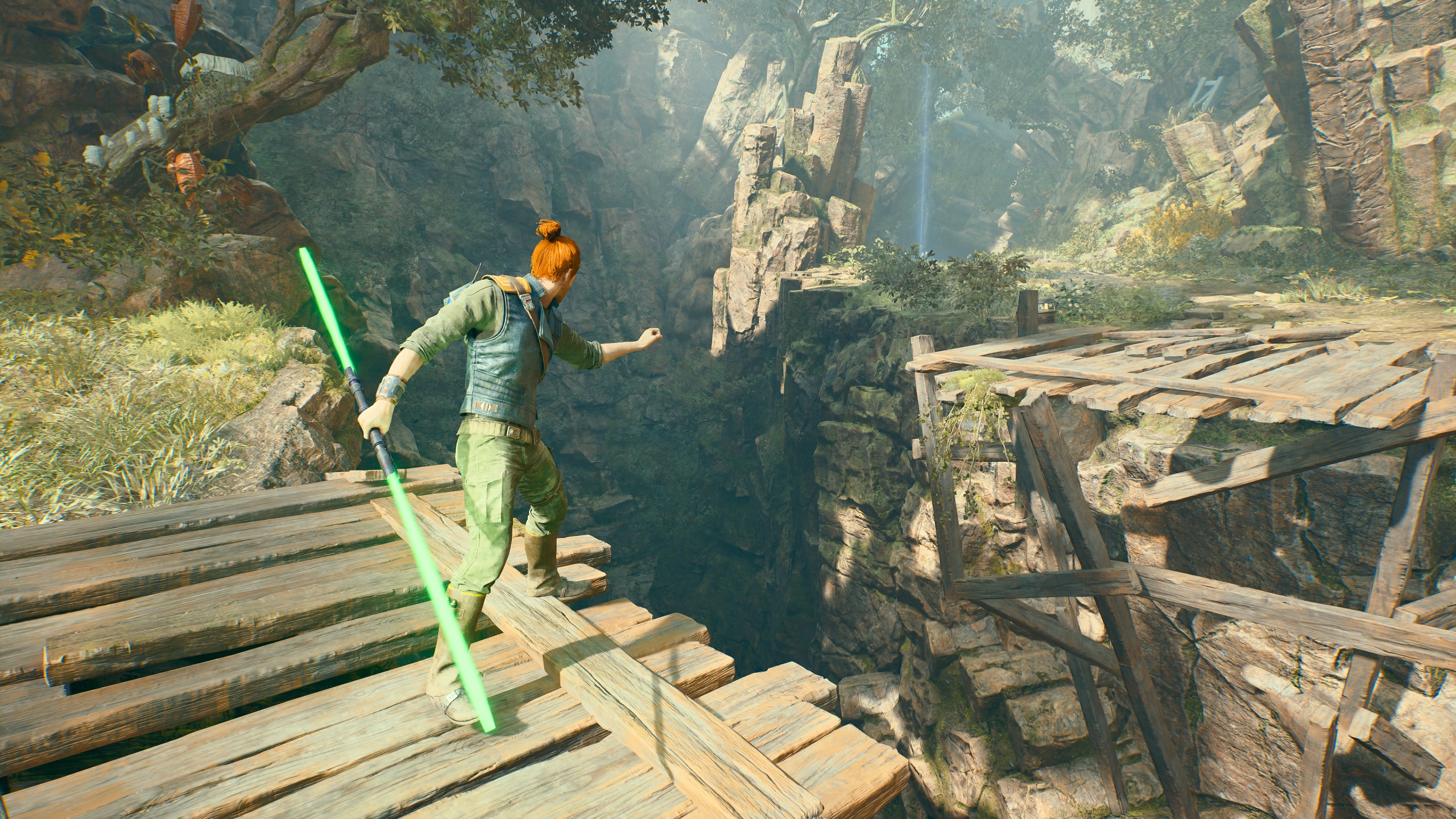
Going from a Padawan to a Knight means mastering new skills, and Cal Kestis has plenty of new abilities to help gain an edge over his foes.
In Star Wars Jedi: Survivor, there are now five so-called Lightsaber stances available. Different stances mean different ways of using your lightsaber, which can provide advantages and disadvantages, depending on which enemies or bosses in Star Wars Jedi: Survivor you happen to be taking on.
You'll start with some of these, while the others will require a bit of work to unlock, but don't worry: They're all required to complete the game, so it's impossible to miss any of them.
Star Wars Jedi: Survivor - How to change stances
You can have two lightsaber stances equipped at a time, but these can swapped out whenever you rest at a meditation point. Every lightsaber stance also unlocks a unique skill tree, so there's plenty of ways to customize Cal and his combat prowess. For most of the game you'll be able to choose whatever stances you want (outside of brief tutorial sections and specific challenges) and it's worth noting you can use the Void Training option when resting to familiarize yourself with a stance's abilities.
Single-bladed
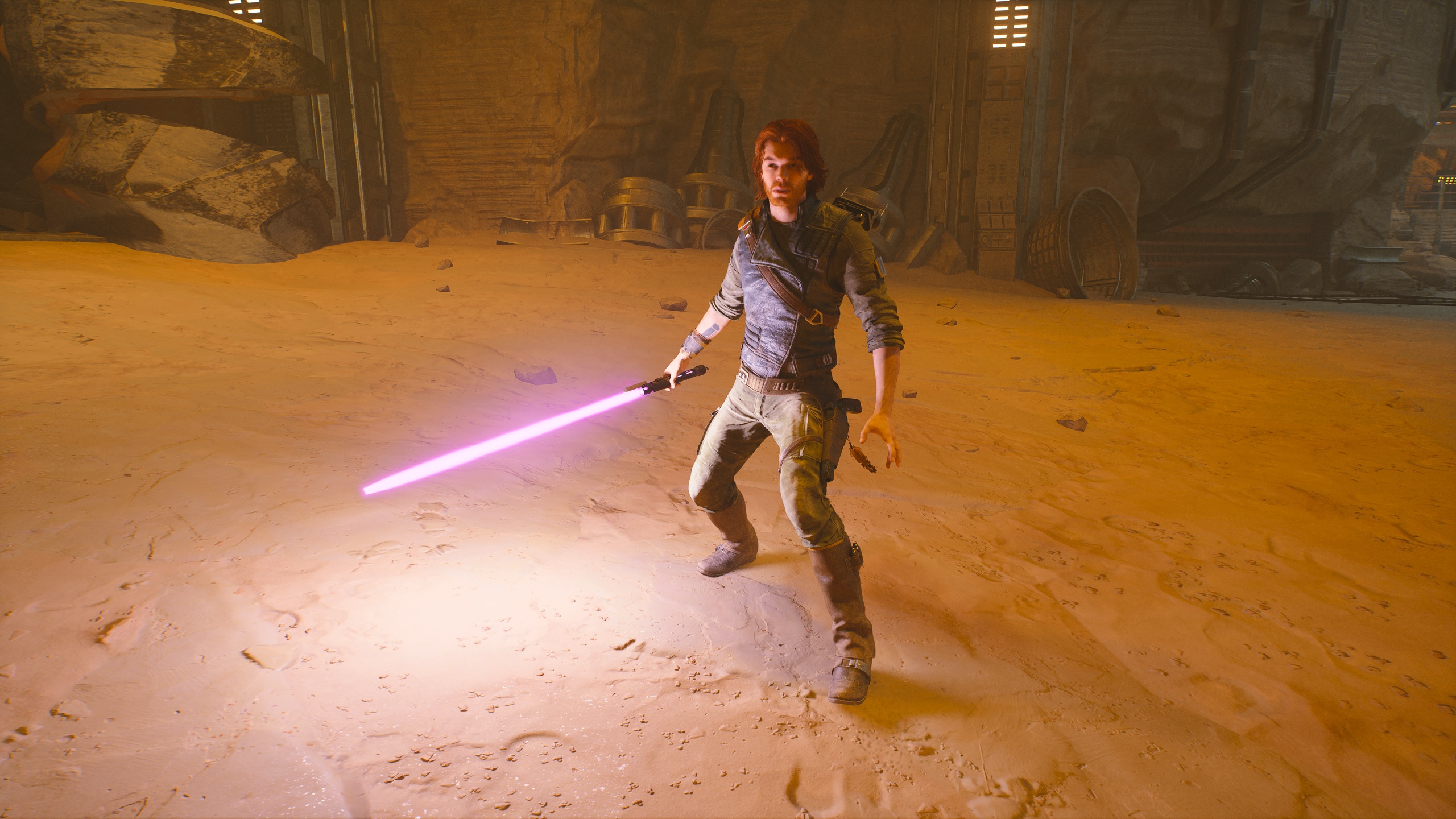
The classic, tried-and-true method that players will have used throughout much of Star Wars Jedi: Fallen Order, the single blade is the ol' standby for a reason: It's not bad at anything. It has no distinct advantages and no distinct disadvantages, being perfectly fine for any kind of fight. You'll have this stance unlocked from the very beginning of the game.
Double-bladed
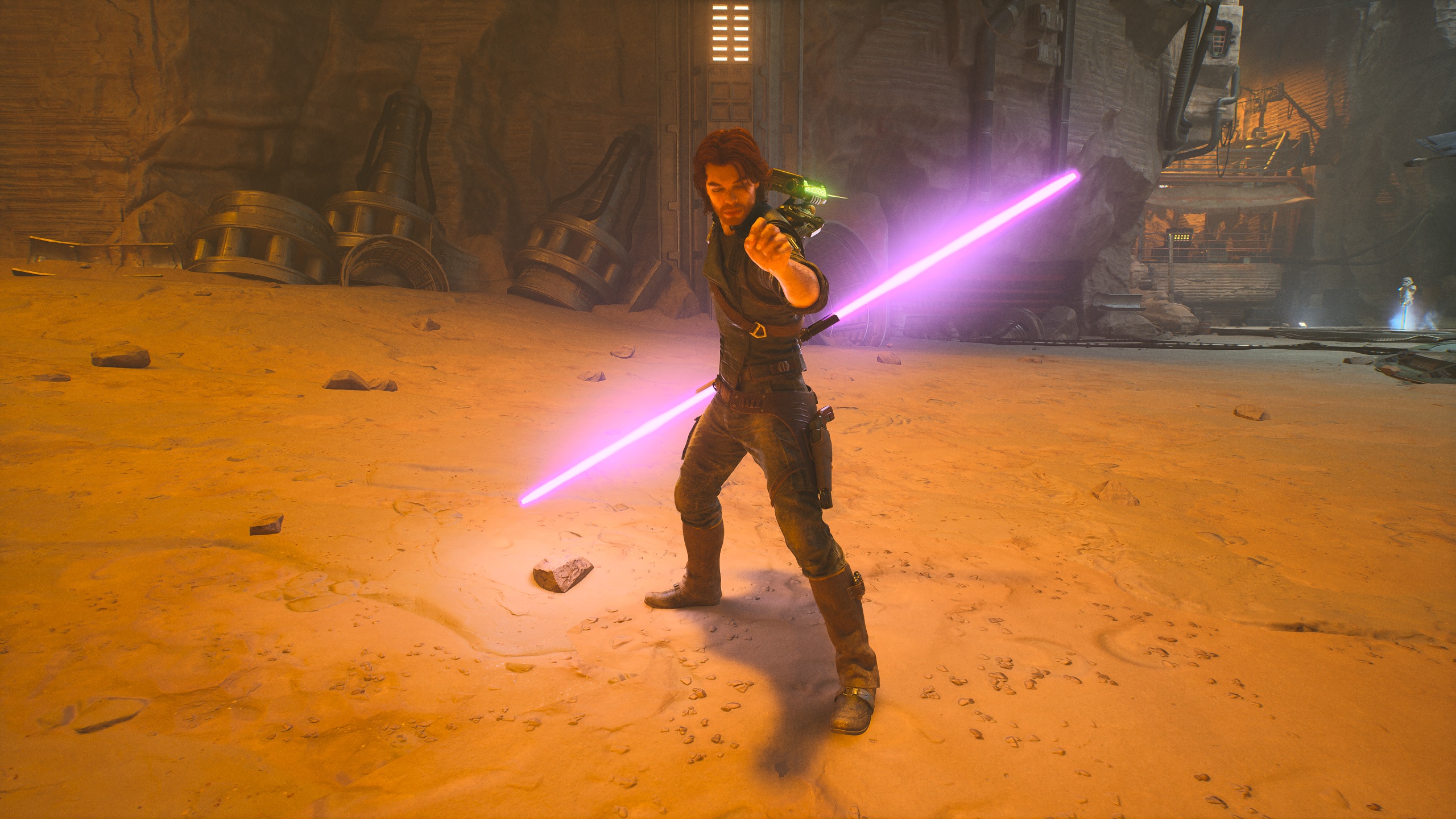
Another stance returning from the preceding adventure, double-bladed combat prioritizes speed, aggression, and defense over power and strength. This stance is great for taking on groups of weaker enemies, or rapidly dealing damage to an extremely large foe such as the Rancors of Star Wars Jedi: Survivor. There are downsides though: It doesn't hit as powerfully as some of the other stances, and also lacks the precision of a single blade.
Dual-Wielding
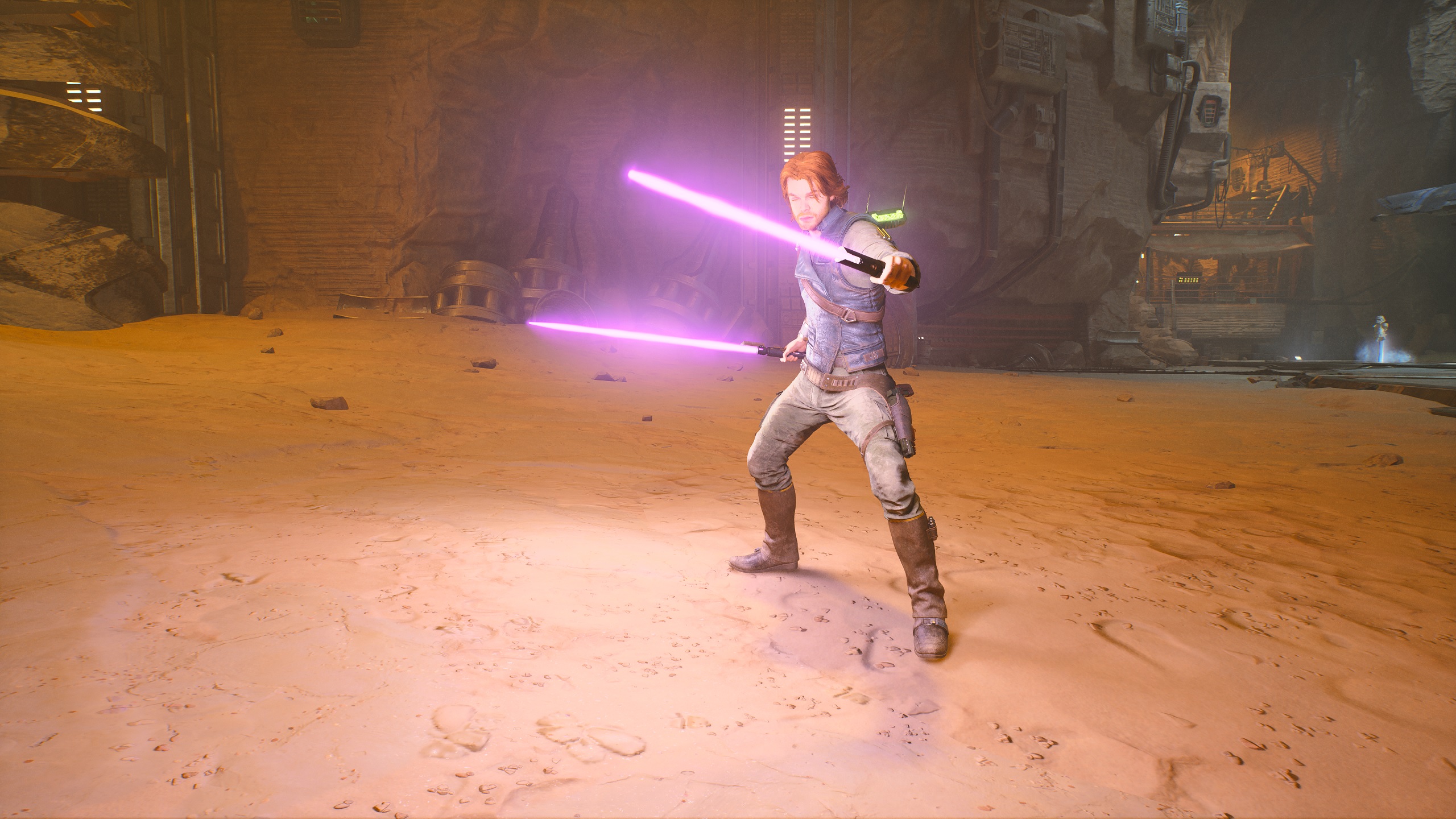
Dual-wielding was technically present in Star Wars Jedi: Fallen Order, but it was only available as a single attack. Here, it's a fully-fledged out stance with a new moveset. Dual-wielding is even faster than the double-bladed stance and still hits hard, but sacrifices your defensive capabilities. Cal's stamina is noticeably reduced in this stance, making successful parries absolutely critical. You'll unlock dual-wielding a short ways into the game, while you're fighting the Ninth Sister on Coruscant.
Crossguard
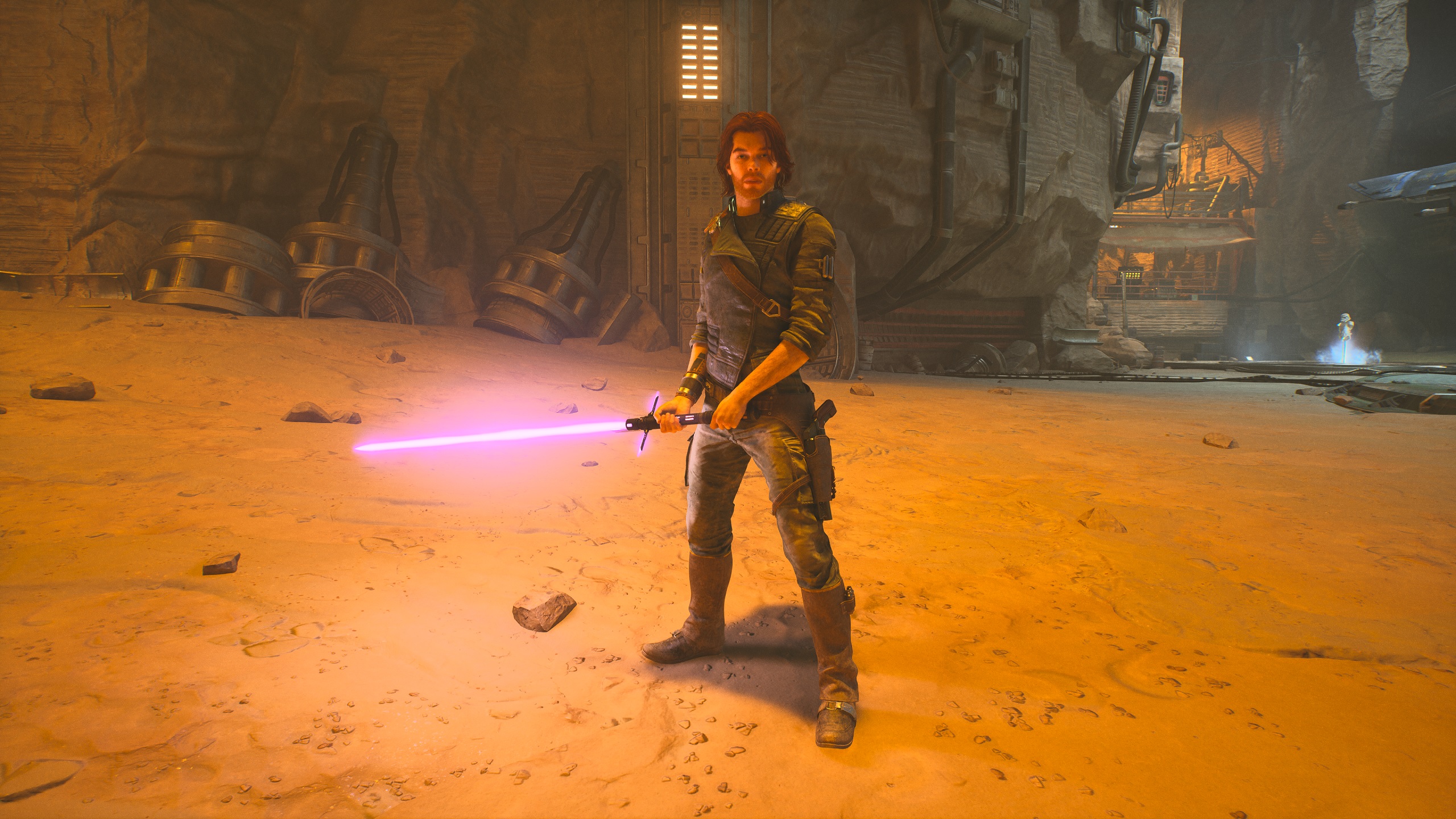
This design dates back hundreds of years in-universe, most famously being adopted by the fallen Jedi Kylo Ren in the sequel trilogy. The crossguard is something of a high-risk, high-reward option, dealing massive damage with each slow swing. It's incredibly powerful, but timing is difficult to get right and it's easy to be overwhelmed by multiple opponents. You'll unlock the crossguard by going to the Shattered Moon in the game's storyline.
Blaster
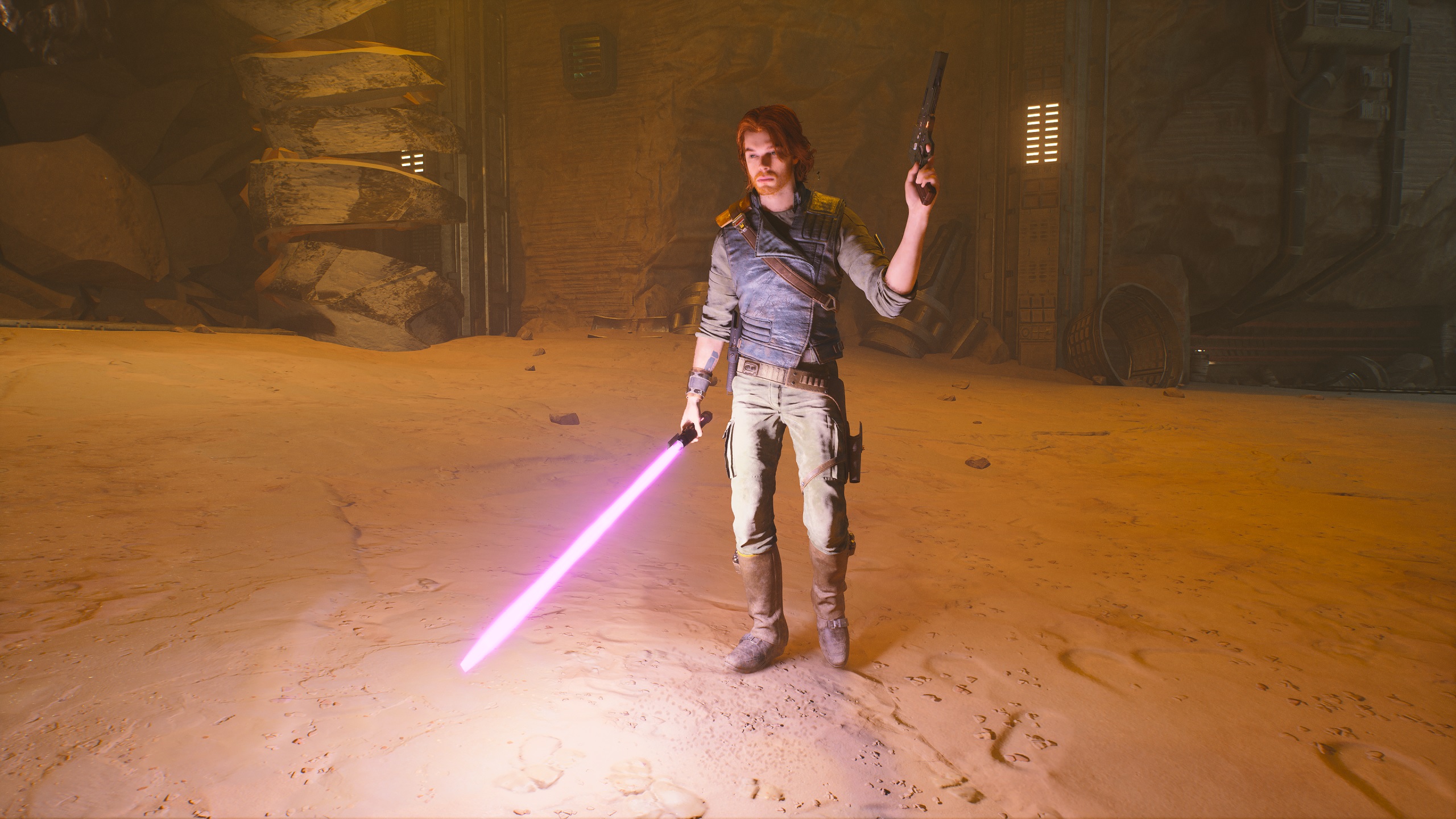
By far the most unique stance, the Blaster stance (appropriately enough) has Cal using a blaster in his left hand while using his lightsaber as a single blade in his right hand. The result is something that can take a bit to get used to, as Cal gains ranged firepower that's perfect for softening up a foe at distance or quickly disposing of weaker enemies without having to get in close.
The downside is that it naturally limits the number of lightsaber moves he has, meaning it's not great for keeping pressure on an opponent at close range, and also suffers when trying to fight defensively. You'll unlock the Blaster stance by progressing the story on Jedha.
Find your style
With all of these different ways to play, there's really something for everyone. Every stance has situations it'll shine in, but it's also up to how you choose to play.
In my review of Star Wars Jedi: Survivor, I wrote that "better exploration, fantastic combat, and emotionally-resonant story, Star Wars Jedi: Survivor is a must-play adventure marred only by some performance issues."







